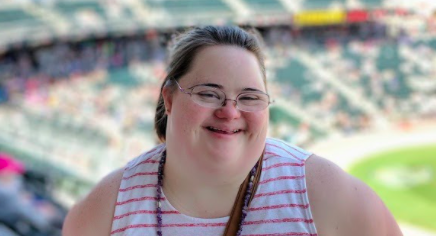“The examination combines the techniques of an observing hierarchy and those of a normalizing judgment. It is a normalizing gaze, a surveillance that makes it possible to quantify, to classify, and to punish. It establishes over others a visibility through which one differentiates them and judges them.” (Foucault, Discipline and Punish)
On Christmas Day 1999, when she was six years old, my little sister Jenna swallowed a whole jar of diuretic pills. Or rather, she chewed them. She always chews pills like they’re candy. And that is probably what she thought they were, lying there on the piano side table at our grandparents’ definitely un-childproof house in a leafy Pennsylvania suburb. This was no suicide attempt. Jenna has Down Syndrome, but her cognitive slowness did not ever imply that she was any less adept than other children at briefly escaping the watchful eye of even the most conscientious parents, which mine were and continue to be, and causing plenty of havoc in those brief few unsupervised seconds.
Login to read more
Sign in or create a free account to access Subscriber-only content.
Topics:
